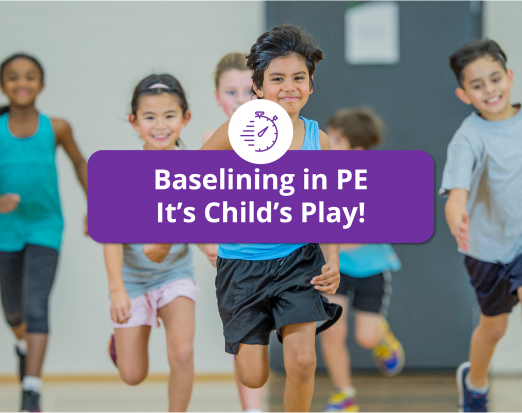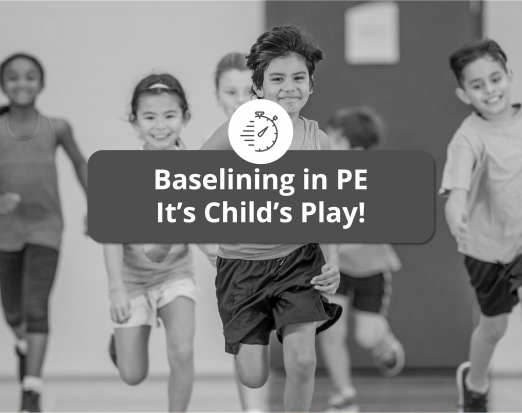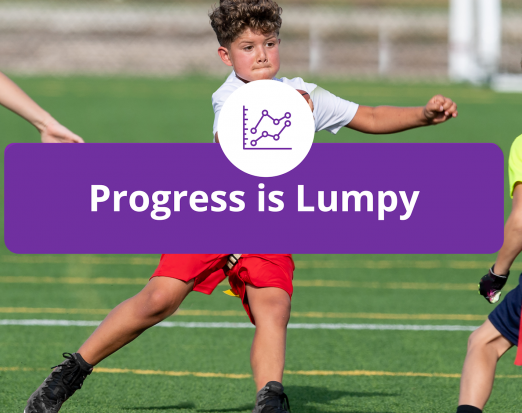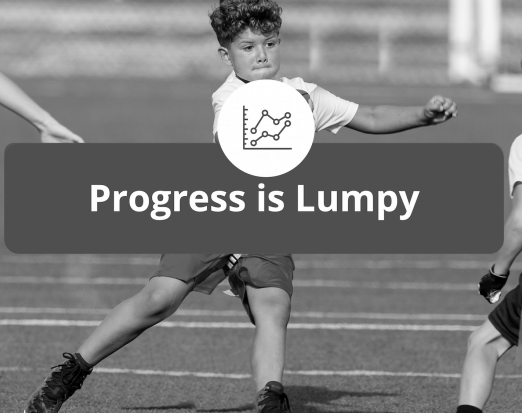PRE-SEASON AT HOME - CHALLENGE 2 SKILL AQUISITION
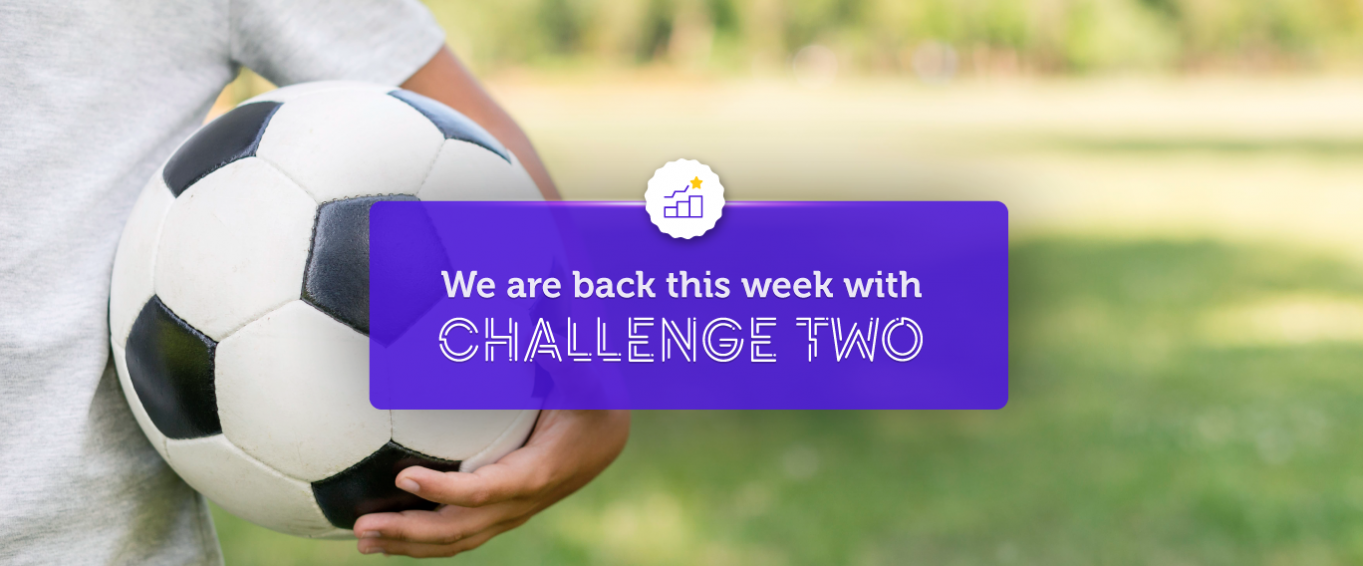
Welcome to Week 2 of our Pre-Season at Home campaign, and this week we will be setting a skill-based challenge and looking at how we acquire skill and also how parents can support their young champions with their overall development.
Although Week 1 focused on some of the physical elements to sport, we recognise what it takes to be the very best, and true champions work hard to acquire and develop the skills required for their chosen sport and our main message this week is to improve and to succeed you must PRACTICE!
Skill Development
We are not born with the ability to Run or Jump, to pass a football or bowl a cricket ball. We must learn these skills and develop them over time through dedication and practice.
The learning and performance of skills such as these are what movement scientists all over the world refer to as Skill Acquisition.
How do we acquire skill?
Acquiring skill is a process, and we must practice, but more importantly we must practice the right things, in the right way and in the right time. This is where good coaching can help provide the support and information required when attempting to learn something new, or to develop an existing skill.
Research suggests that there are normally three stages when acquiring a skill, and it each stage the needs of the athlete, or sports performer may be different.
Stage 1: The Cognitive Phase
This is where the learner focuses on learning the basics of the new skill, and for many coaches teaching of this skill maybe delivered in isolation. As learning a new skill is tricky, the learner will be focusing on what to do and how to do it and will not be too concerned about its context. Using football, passing as an example, the new players may be thinking about:
- What part of the foot shall I pass with?
- What happens with their other foot?
- What part of the ball do you kick?
- How do you aim when passing.
At this stage, the our Young Champions will need instruction and coaching. For many of our users, this will be in place, as our participants are either playing in football teams, rugby teams, cricket teams or have developed skills in PE at school. However, as our app has been developed by some of the very best coaches, sports scientists and movements specialists there are plenty of instructional videos to support your child when learning a new skill.
Most importantly at this stage, Young Players need support, we will be with you every step of the way, but providing your child with guidance and encouragement could help them achieve their very best!
Stage 2: The Associative Phase
At this stage, the players/athletes will start to problem solve. The execution of the skill can still be inconsistent, but players will start to see some success. If we use the same example as above, passing in football, players will:
- Start to use different parts of the foot for different situations
- Will be able to adapt the position of the non-kicking foot depending on the pass
- Be able to select the right part of the ball to execute the pass
- Understand how and where to aim, e.g. Pass to a teammate, or play into space.
BUT…. Players at this stage will still make some performance mistakes. This is the most frustrating phase. At this phase, learners often know what to do, but can find it difficult to do it. The only way of progressing through this phase is PRACTICE, PRACTICE, PRACTICE.
Practicing the correct techniques over and over again allows us to refine our skill level and cements learning, even physical learning into long term memory.
At this stage, encouragement is the key and do not expect too much from your child. They will get there, and everyone is different, some skills will come easier than others for different learners.
Young Champions provides your child with:
- Sports Skills (in a range of skills)
- Movement Skills (allowing your child to master the functional movements to complete a range of skills
- Fitness Sessions
- Yoga Activities to increase flexibility and reduce the risk of injury
- Dance Activities to increase coordination
All of this combined, allows your child to practice, without needing to be at their sports club or at school, and allows them to take ownership of their own development.
Stage 3: The Autonomous Phase
Not every player will reach this phase, but with plenty of hardwork and practice it is achievable for everyone. Learners that achieve this phase of skill development will notice that the skill has become automatic. If we continue with our example, players will now not need to consider:
- The part of the foot
- The none kicking foot
- The ball etc.
They will simply see the pass they require and they will execute the right pass, on instinct! Players that progress to the standard will often be able to carry out multiple tasks at the same time, e.g. Passing on the run, calling to a team mate etc. All in one go.
This should be the ambition of all players, and it is more than achievable with……
PRACTICE, PRACTICE, PRACTICE.
So far this all seems pretty simple, work hard, practice the correct skills, the correct way at the correct time and get better! Straight-forward enough?
It is with the correct practice. We have designed Young Champions has been so that all children can practice as often as they wish, but we really recommend 15-30minutes a day at least, we recognise that many of our users will have other forms of training, we just want to give you that extra edge, and for those users that are just starting out, we have programmes for you too, to build your skills and confidence before joining your teams etc.
However….
YOU CAN UNLEARN SKILLS
There is such a thing as unlearning skills and unfortunately, there is lots of research that supports this theory. Not performing a skill for a long period of time can lead to performance being negatively affected when we perform it again. Many reading this blog might have themselves used the term, “I feel a bit rusty.” This is exactly what it is when we unlearn a skill, we know we can achieve it, but we find the skill pathway difficult to retrieve from long term memory, and although we might get some success after a while, the only true way of ensuring that we continue to develop and perform, is to PRACTICE.
WHICH LEADS US TO CHALLENGE 2
Watch the following video:
Throughout the summer, we are challenging you to set a NEW PERSONAL BEST at Keepy Ups!
Try your best to set a new record and do as many as you can. We have provided a football example, but you could try a similar activity bouncing a tennis ball on a tennis racket or a cricket ball on a cricket bat etc.
We would also love to see how you get on, so please send us the video’s of you attempting this challenge to yc@amaven.co.uk
MISSED CHALLENGE 1?
Don’t worry, if you missed the first challenge, you can join in at any time. To join our summer of challenges, simply follow the 2 step process below:
- Sign up to Young Champions FOR FREE
- Click “Start a Test” in your Young Champions portal, complete the activities and record your scores!
VIEWING YOUR RESULTS
Once you have completed Challenge 1 and uploaded your scores by following the simple onscreen instructions, you can view your results instantly:
- Log in to your portal and click “My Players”
- Choose your name
- Click, View Results in the grey box, next to your name.
- Your results will instantly be presented to you – remember the ultimate summer challenge is to improve your scores throughout the summer.
Log in to Young Champions below or sign up FOR FREE!
